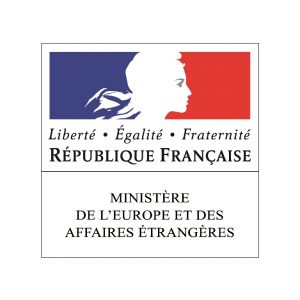In 2017, the city of Mosul in northern Iraq paid a heavy price for being the last major urban stronghold of ISIL in the country. The military operation to clear Mosul of ISIL laid waste to vaste areas of the city, particularly in the west. Bridges, roads, hospitals, and key water infrastructure were damaged or destroyed. As the city reopened to outsiders, ACTED began a range of 'Quick Impact Projects' or QIPs, to bring a sense of normality back to West Mosul.
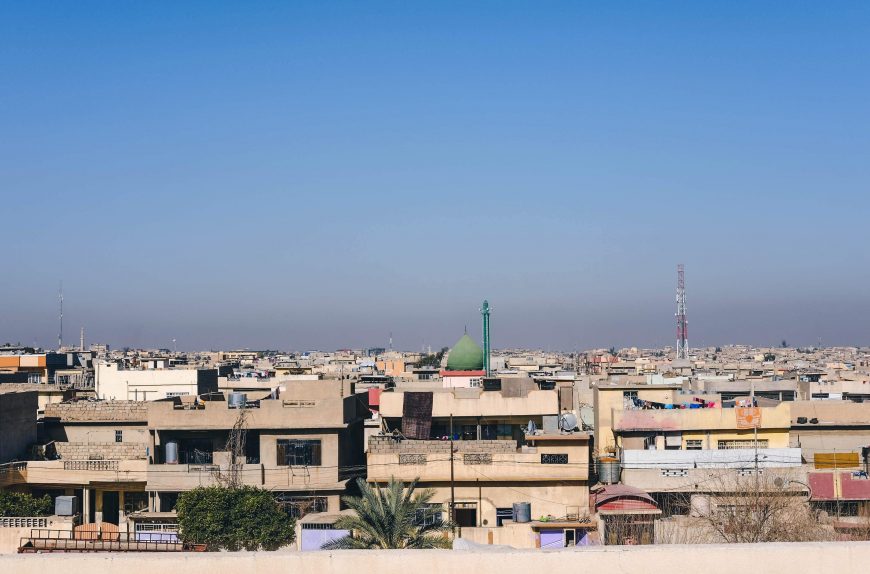
A community led project
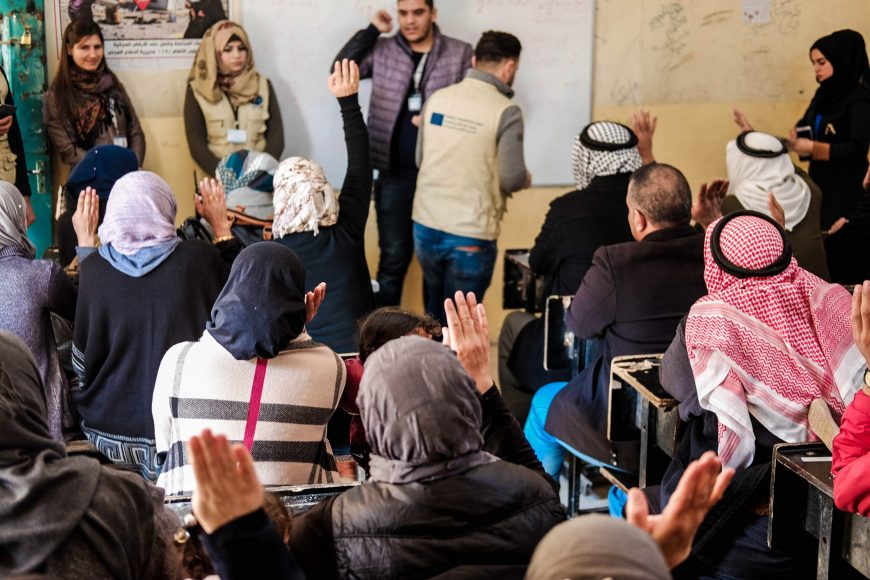
The selection and design of ACTED’s QIPs in Al-Jadida municipality, were based upon community consultations which allowed a proritisation of works which directly reflected the concerns of residents. ACTED also took into account how quickly these projects could bring solid improvements to the lives of residents.
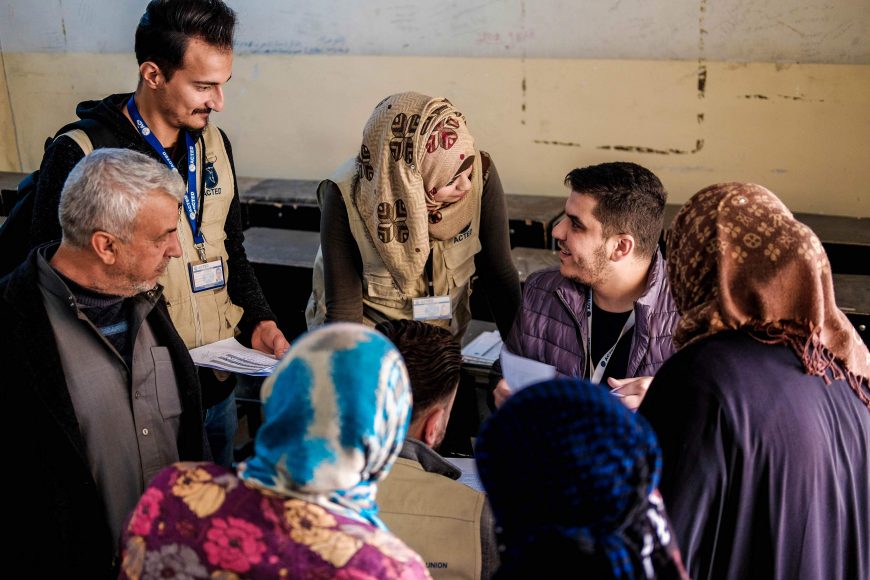
Overall, 94% of focus group participants at the end of the project felt the QIPs had effectively filled their immediate objectives.
Reviving a city through its infrastructure
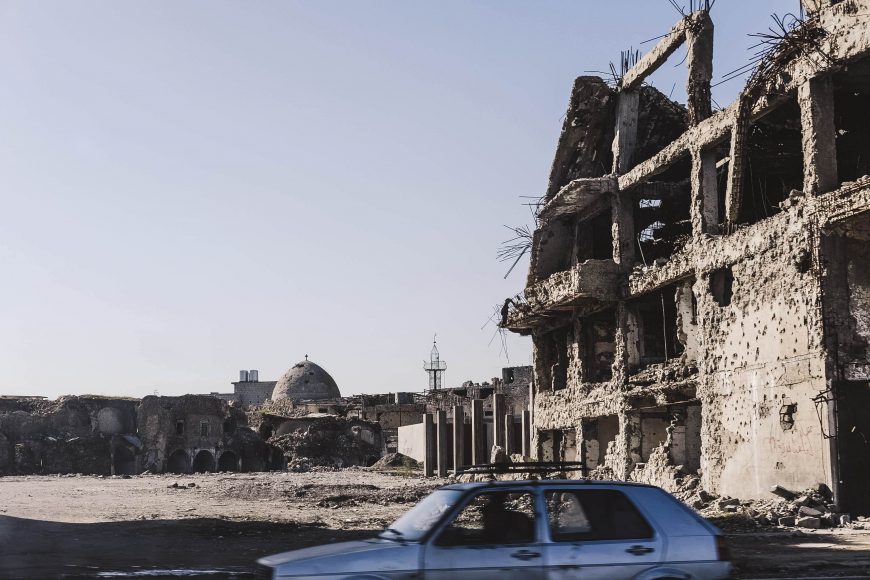
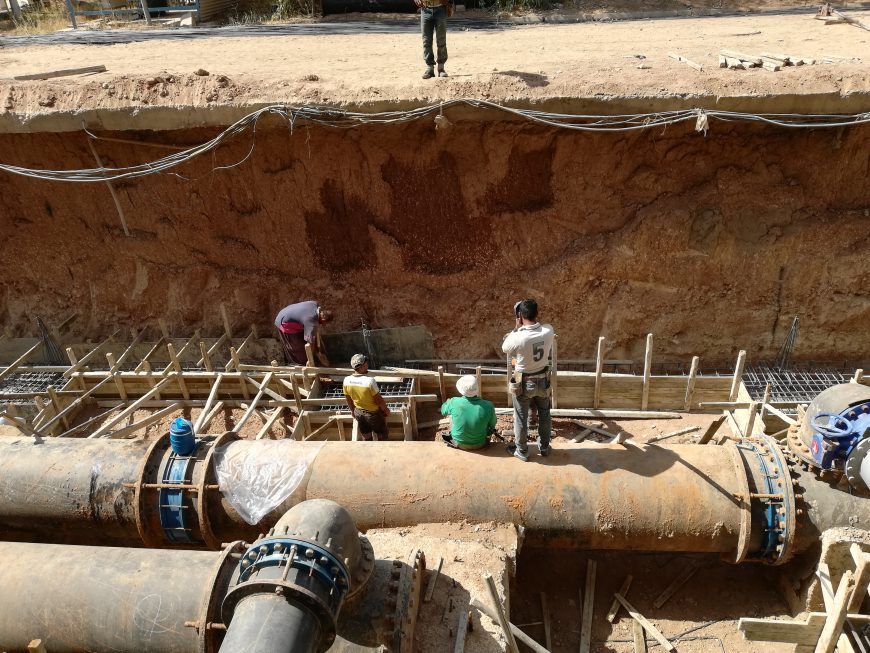
Over 86,000 people benefited from ACTED’s work to rehabilitate damaged water pipelines in a major water plant located in the Rajim Hadid neighbourhood.
This project was innovative and effective because it had a rapid impact: As soon as the water plant restoration was complete, water started flowing again, reaching thousands of people every day.
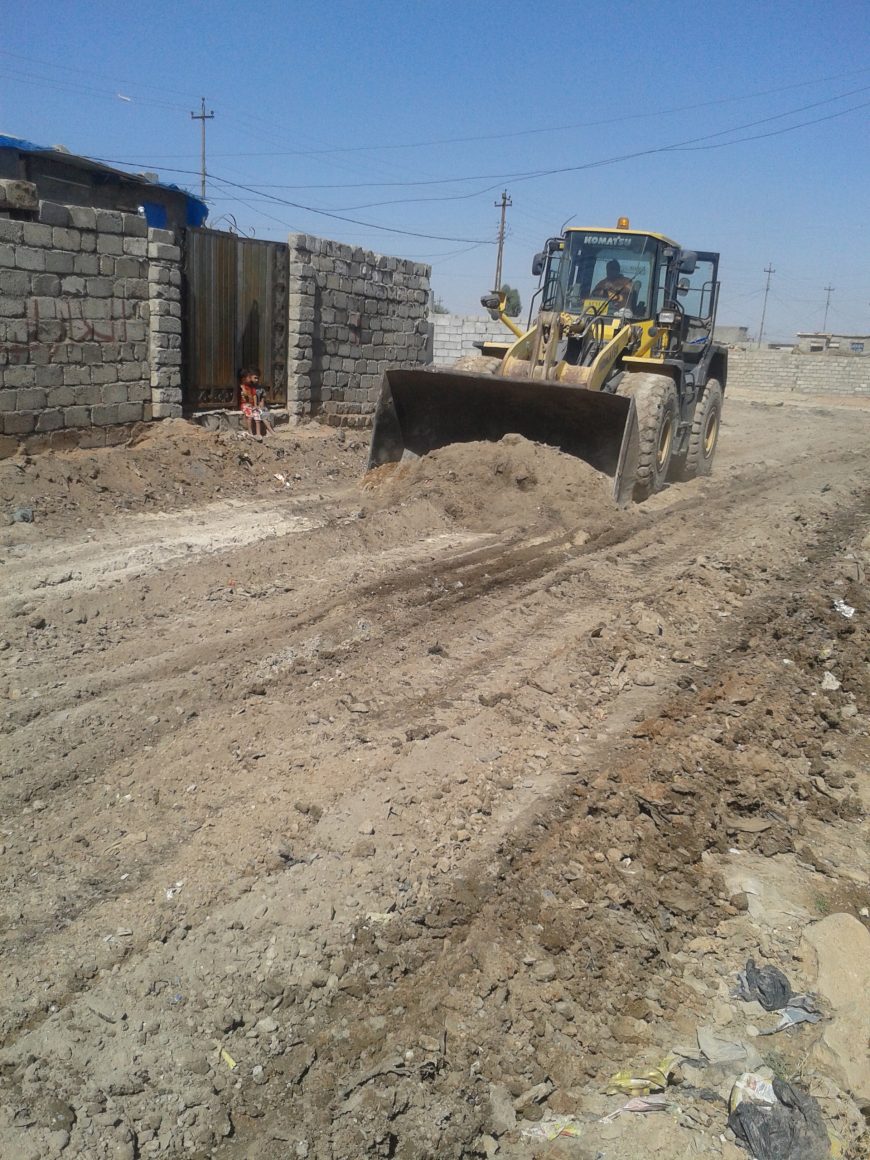
Residents in Rajim Hadid reported that the conditions of roads in their neighbourhood was stiffling access, preventing children from getting to school and generally marginalising those attempting to jumpstart the local economy.
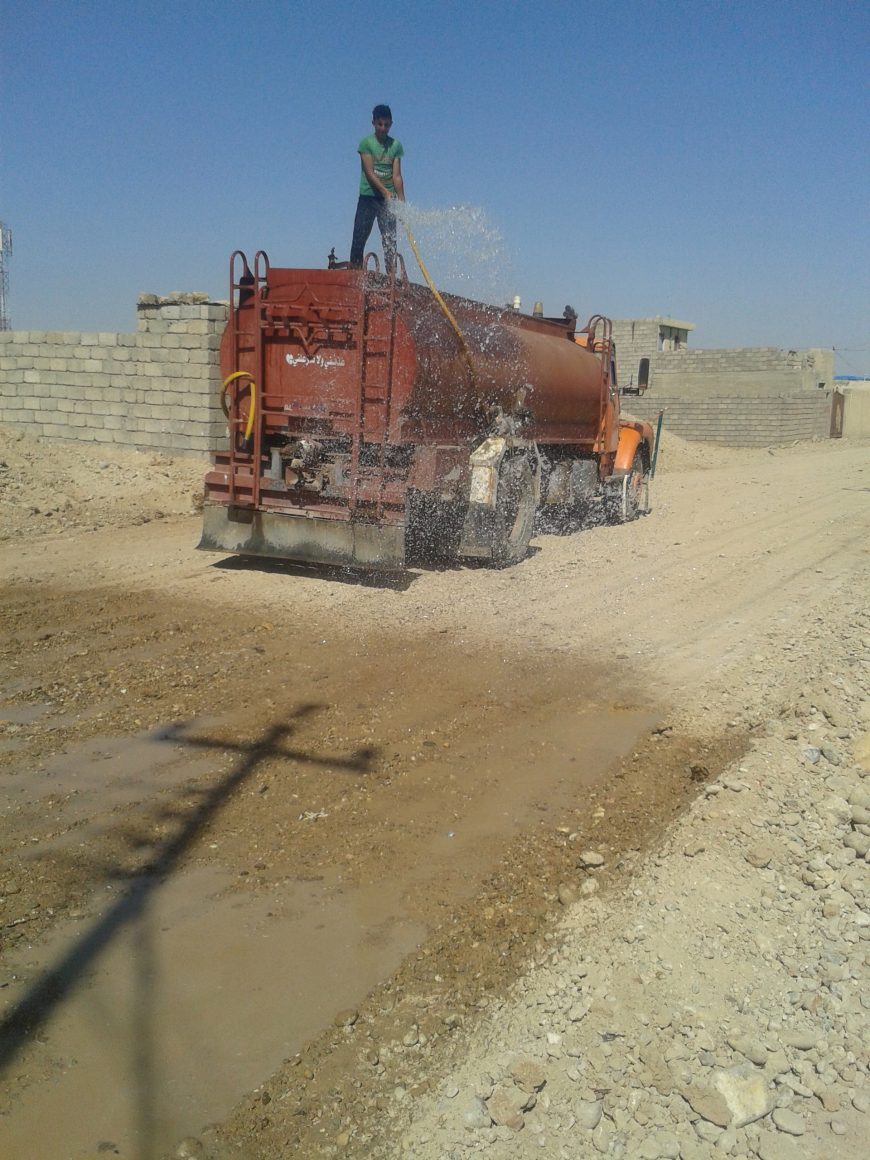
ACTED hired a group of local residents to begin road repairs from which over 3,000 families would benefit.
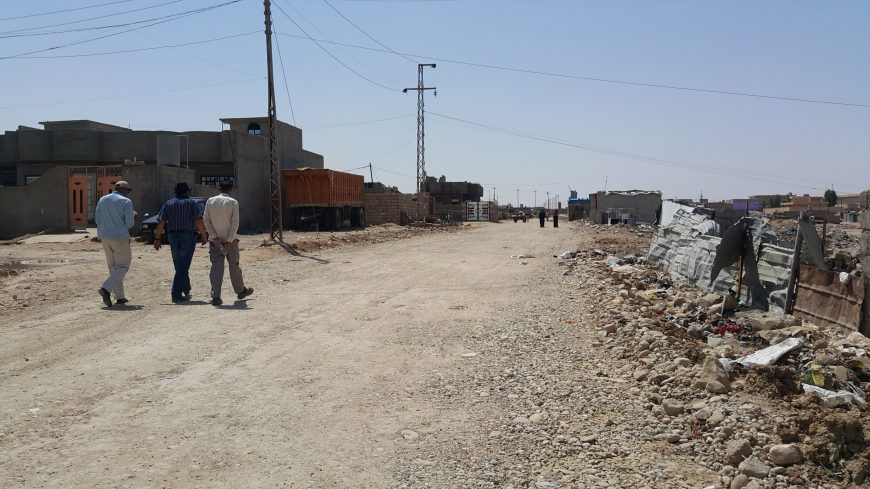
By the end of this QIP, ACTED had paved 1.4km of road, restoring access to residents. Children are now able to walk to school during the wetter seasons and ambulance access has resumed.
Jumpstarting garbage collection
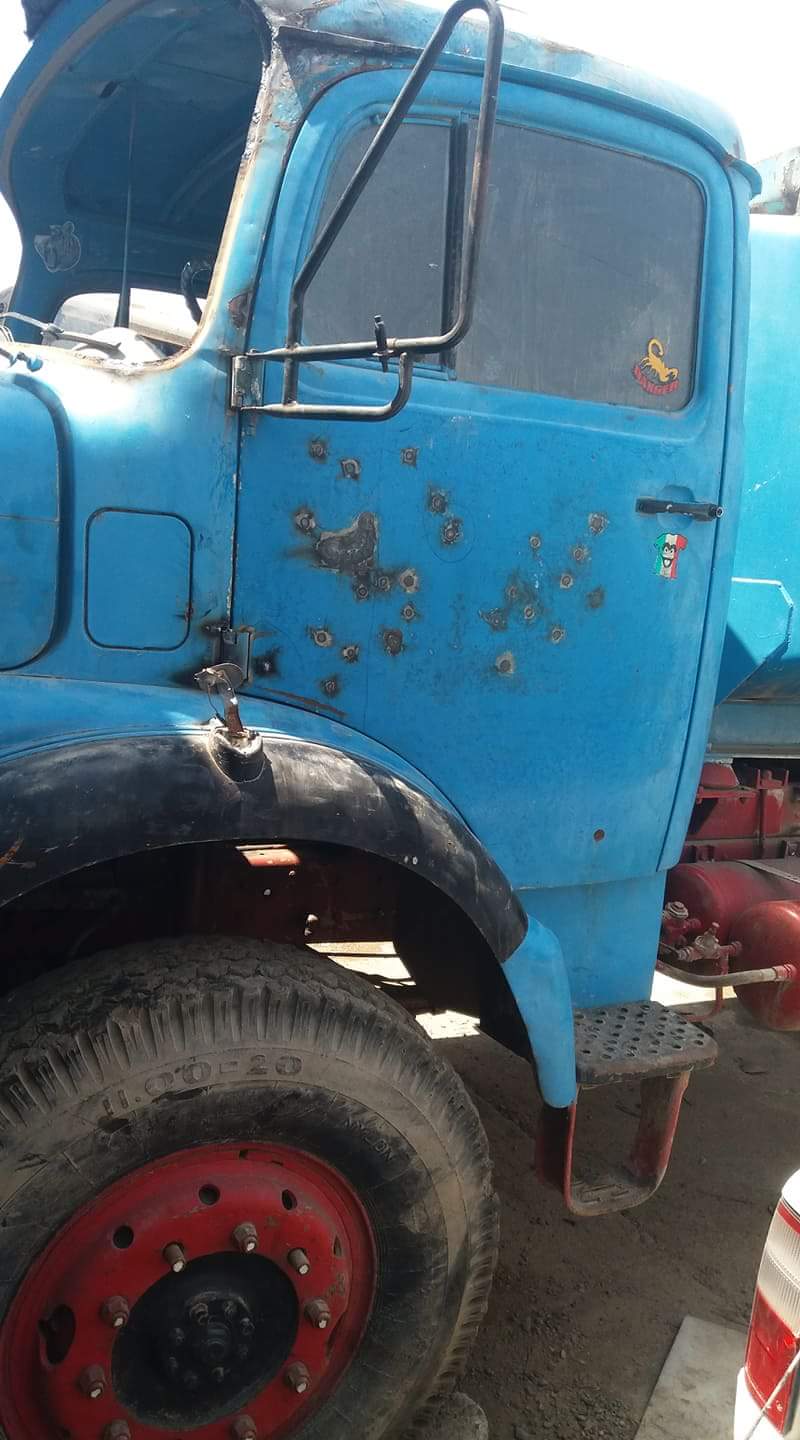
During community consultations, poor waste management was reported as one of the major concerns of residents. Out of the 30 garbage trucks in Al-Jadida municipality, half of them were no longer functional.
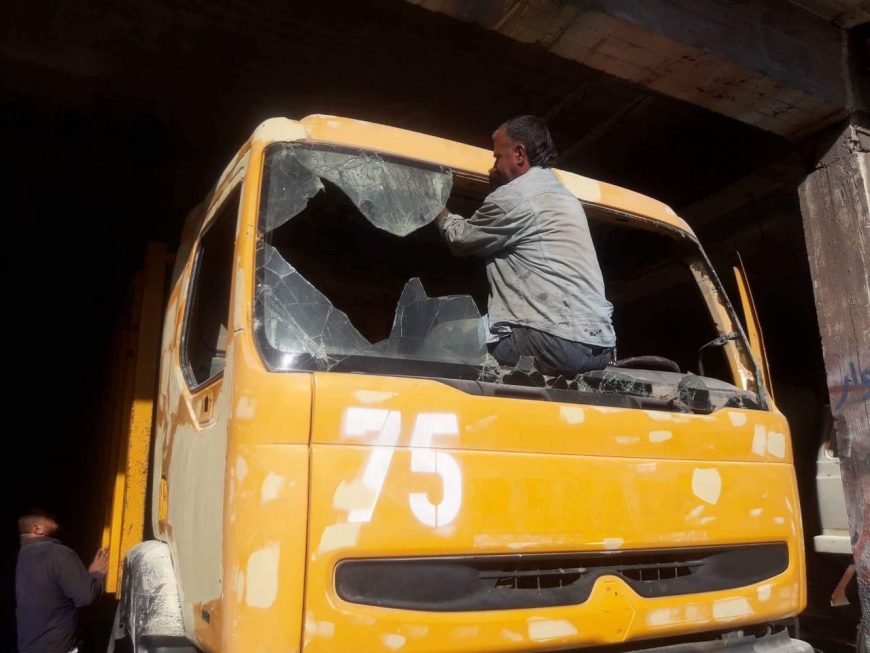
ACTED hired a local engineering company to bring 13 garbage trucks back into service.
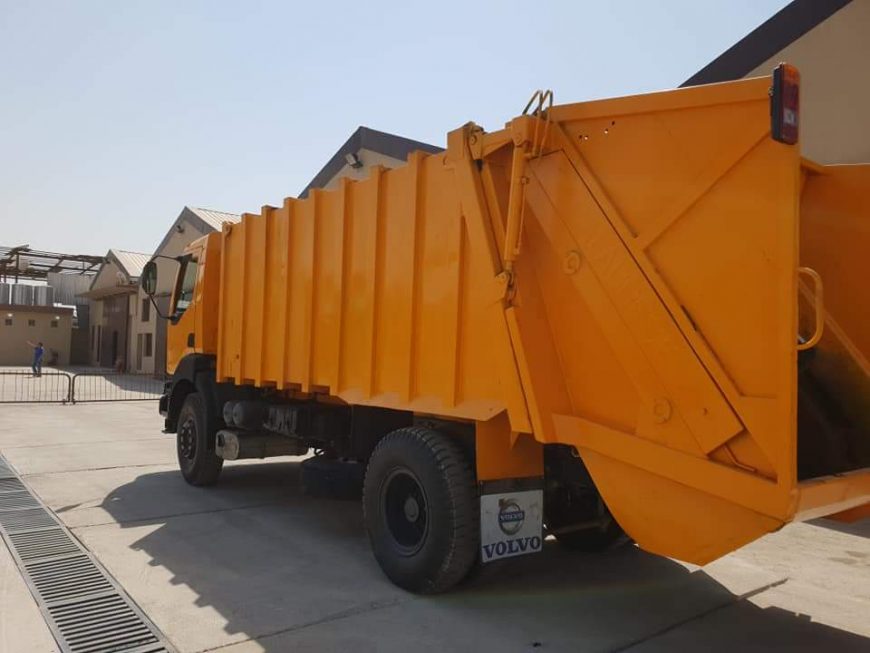
Over 144,000 people now benefit from an improved garbage collection system.
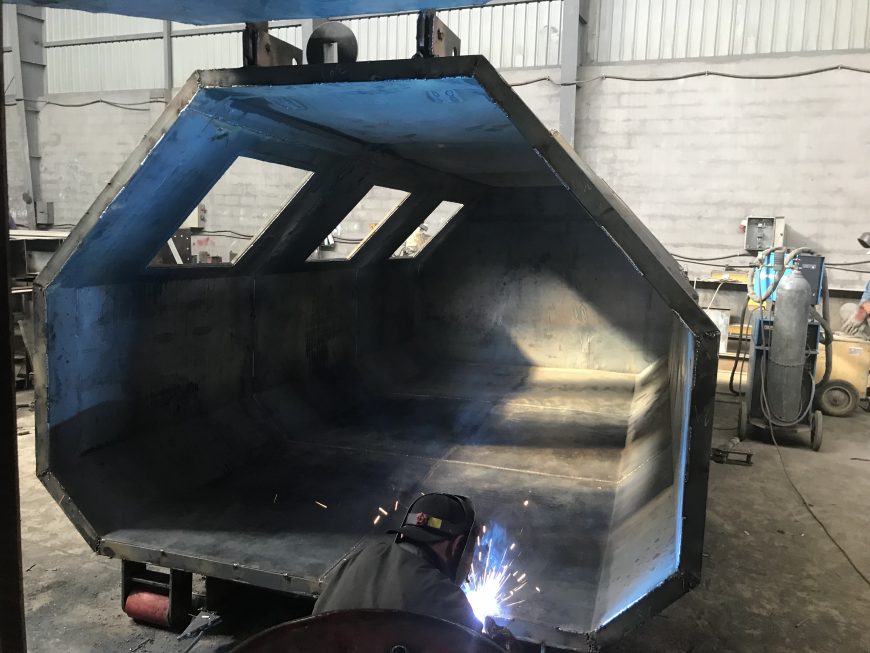
Many of the neighbourhoods bins were destroyed in the fighting. A local engineering company was tasked with restoring community bins and installing them in the most accessible locations.
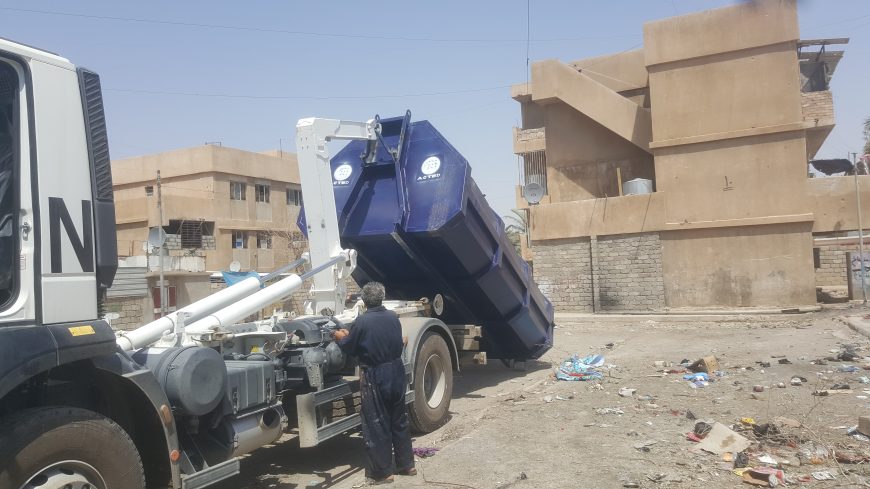
ACTED installed 6 collective bins and launched an awareness raising campaign through distributing leaflets door to door to promote good sanitation and hygiene practices.
Creating employment opportunities with significant local impacts
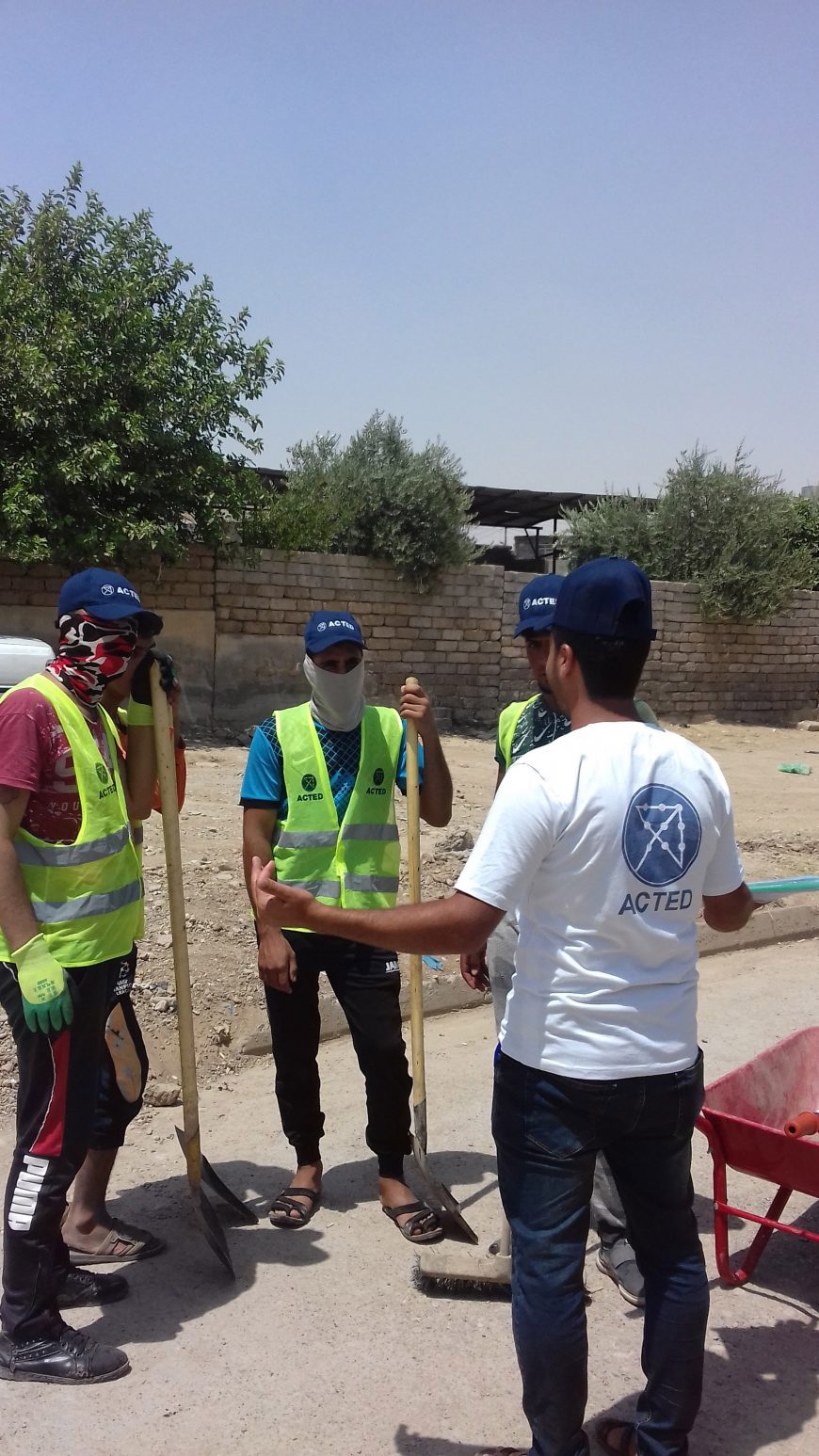
Before ACTED’s intervention, the residents of Al-Shuhada and Mualimin were exposed to trash pollutants and other major sources of waste on a daily basis. Mounds of trask blocked the flow of sewers and residents were left exposed to hazardous sunstances such as liquid, solid and sludge.
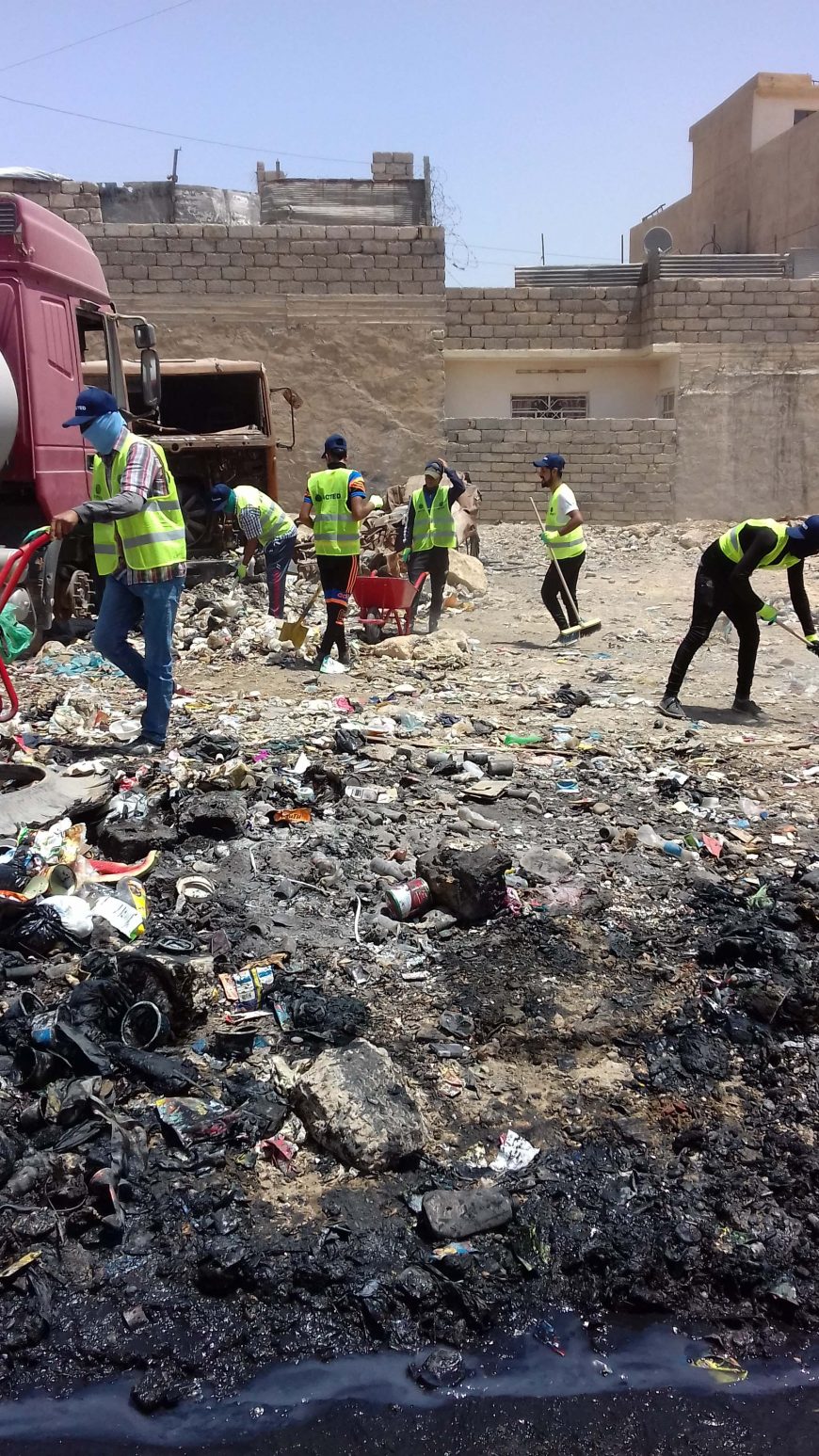
Daily labourers hired through Cash-for-Work programming clear debris and waste from the streets of Al-Shuhada. 850 household benefited from the action.
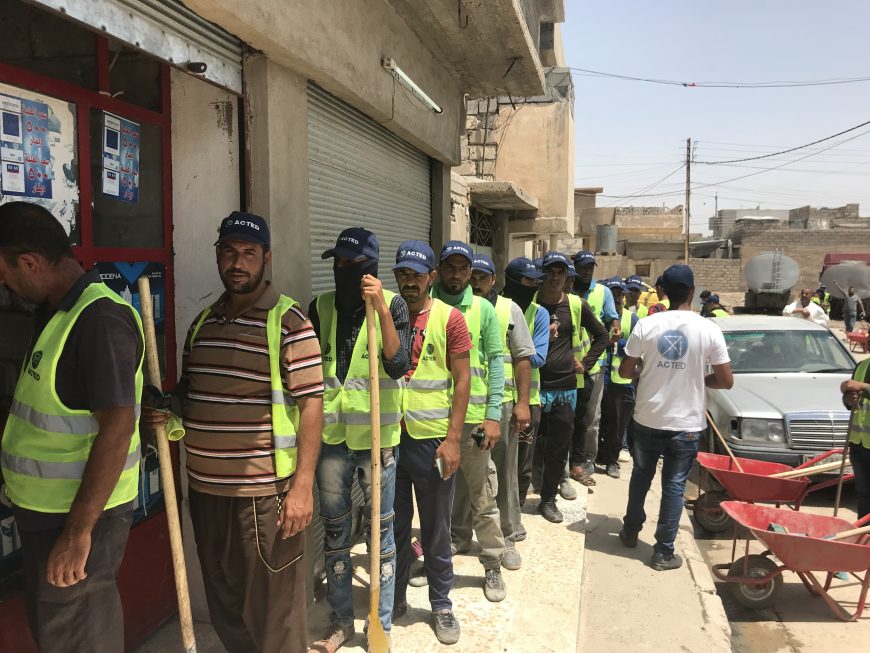
ACTED employed members of over 290 households to take part in this street cleaning initiative.
The results were immediate and in the long-term, this project increased people's awareness of cleanliness and care for their neighbourhood.
This project was made possible through the support of The Crisis and Support Centre - French Ministry of Foreign Affairs and International Development.
